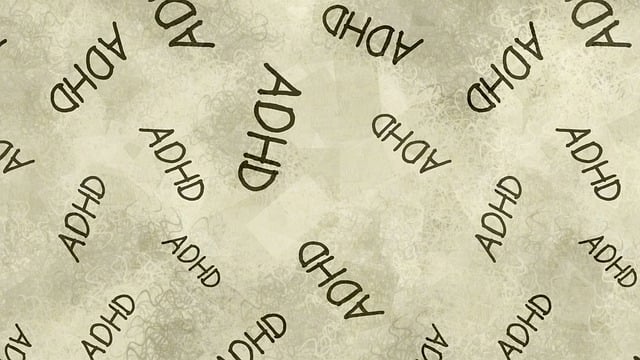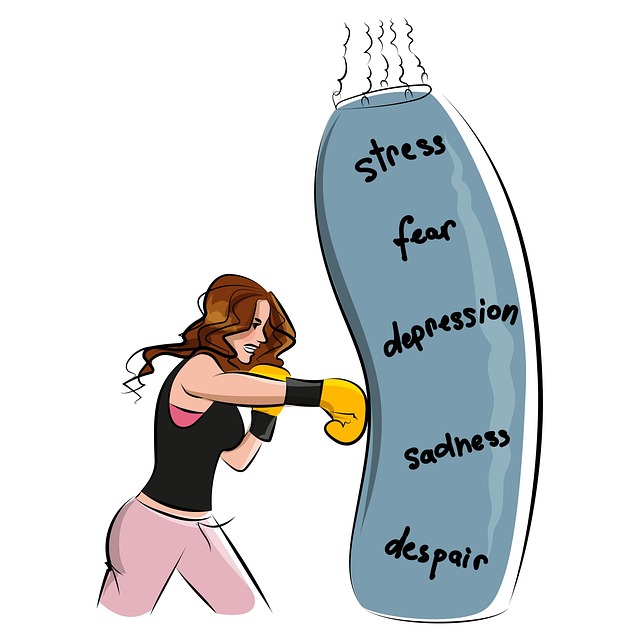Westminster Divorce Therapy offers a comprehensive approach to managing chronic stress, a major contributor to mental health issues like anxiety and depression. They combine techniques such as Cognitive Behavioral Therapy (CBT), mindfulness practices, and healthy lifestyle habits to help individuals identify stress triggers and develop personalized management strategies. Their unique methods include journaling exercises, mindset reframing, and support for reducing stigma around mental illness. By addressing negative thought patterns, fostering self-awareness, and adopting healthier habits, Westminster Divorce Therapy equips clients with tools to enhance well-being and cope with life's challenges.
Stress management is a vital skill in today’s fast-paced world. This comprehensive guide explores various techniques to combat stress, offering a holistic approach to well-being. We delve into the science behind stress, its causes and consequences, setting the stage for effective solutions. From cognitive behavioral therapies to mindfulness practices, we provide practical strategies. Additionally, we highlight the role of Westminster Divorce Therapy as a game-changer in managing stress, fostering resilience, and promoting a balanced life.
- Understanding Stress: Unraveling the Causes and Effects
- The Role of Westminster Divorce Therapy in Stress Management
- Cognitive Behavioral Techniques for Stress Reduction
- Mindfulness Practices: Cultivating Presence in a Stressed World
- Lifestyle Changes: Nurturing Resilience through Diet, Exercise, and Sleep
Understanding Stress: Unraveling the Causes and Effects

Stress is a multifaceted phenomenon that can stem from various sources, including work pressure, financial worries, personal relationships, and even routine daily tasks. Understanding these triggers is the first step in effective stress management. At Westminster Divorce Therapy, we recognize that chronic stress left unaddressed can lead to severe consequences for mental health, manifesting as anxiety, depression, or worse. Recognizing this critical link, our therapy sessions are designed to help individuals unravel the causes of their stress and equip them with tools to mitigate its effects.
By delving into the specific stressors and their underlying emotional responses, our experienced therapists support clients in developing personalized strategies for stress management. This proactive approach not only enhances overall well-being but also serves as a powerful preventive measure against depression and other mental health issues. Moreover, participating in Stress Management Workshops organized by our institution can equip mental health professionals with effective risk management planning techniques, thereby fostering healthier work environments and stronger therapeutic practices.
The Role of Westminster Divorce Therapy in Stress Management

Westminster Divorce Therapy offers a unique and valuable service in the realm of stress management, providing individuals with powerful tools to navigate life’s challenges. This therapeutic approach goes beyond traditional counseling by incorporating specialized techniques tailored to help clients cope with stress and promote mental wellness. Through its comprehensive guidance, individuals can learn effective mental wellness journaling exercises that allow them to process emotions and gain perspective. By documenting thoughts and experiences, they can identify sources of stress and develop healthier coping mechanisms.
Additionally, Westminster Divorce Therapy introduces the concept of mind over matter principles, empowering clients to reframe their mindset and cultivate resilience. This proactive approach encourages individuals to challenge negative thought patterns and build a stronger psychological foundation. With dedicated support, clients are equipped not only to manage existing stress but also to prevent future stressors from overwhelming them. The therapy’s holistic nature further extends to mental illness stigma reduction efforts, fostering an environment where individuals feel understood and supported in their journey towards mental health and well-being.
Cognitive Behavioral Techniques for Stress Reduction

Cognitive Behavioral Techniques (CBT) have proven to be highly effective in stress management and are often a key component in Westminster Divorce Therapy. CBT focuses on identifying and changing negative thought patterns that contribute to stress, anxiety, and even depression. By challenging these distorted thoughts and replacing them with more realistic and positive ones, individuals can gain better control over their emotions and behaviors, leading to reduced stress levels.
This approach not only helps manage immediate stressors but also fosters resilience in navigating life’s challenges. Moreover, CBT has been instrumental in Mental Illness Stigma Reduction Efforts by promoting a deeper understanding of mental health conditions and encouraging self-acceptance. The Mind Over Matter principles underlying CBT emphasize the power of one’s mindset, encouraging individuals to cultivate a positive outlook that can significantly impact their overall well-being and Self-Esteem Improvement.
Mindfulness Practices: Cultivating Presence in a Stressed World

In today’s fast-paced world, mindfulness practices have emerged as a powerful tool for navigating the stresses of daily life. Westminster Divorce Therapy emphasizes the importance of cultivating presence and self-awareness to combat the challenges that can arise in both personal and professional realms. By incorporating self-awareness exercises into their routines, individuals can develop coping skills that foster mental clarity and emotional resilience. These practices encourage people to focus on the present moment, reducing the impact of anxious thoughts and helping them respond rather than react to stressful situations.
Mindfulness isn’t just about stilling the mind; it’s a way of engaging with life in a more intentional manner. Through regular practice, individuals can experience anxiety relief, improved concentration, and a heightened sense of inner peace. By learning to observe their thoughts and emotions without judgment, they can develop a deeper understanding of themselves and better manage stress as it arises. This proactive approach, supported by Westminster Divorce Therapy, equips folks with invaluable coping skills for navigating life’s challenges.
Lifestyle Changes: Nurturing Resilience through Diet, Exercise, and Sleep

Adopting a healthy lifestyle is an essential aspect of managing stress and building resilience, especially in navigating challenging life situations like divorce or trauma. Diet plays a pivotal role; incorporating nutrient-rich foods can significantly impact one’s mental well-being. Studies show that a balanced diet, rich in omega-3 fatty acids, vitamins, and minerals, can enhance cognitive function and emotional stability, making it a powerful tool in stress management.
Regular exercise is another cornerstone of stress reduction. Physical activity stimulates the release of endorphins, often referred to as “feel-good” hormones, which naturally reduce stress and promote relaxation. Whether it’s a peaceful walk in nature or intense aerobic workout, finding an exercise routine tailored to individual preferences can be transformative. Additionally, prioritizing quality sleep is crucial; it allows the body and mind to recover from daily stressors. Westminster Divorce Therapy emphasizes the importance of sleep hygiene, encouraging clients to establish consistent sleep patterns for improved mental health and stress resilience.
Stress management is a holistic process that involves understanding our unique stressors, employing therapeutic tools like Westminster Divorce Therapy, adopting cognitive behavioral techniques, cultivating mindfulness practices, and making positive lifestyle changes. By integrating these diverse approaches, individuals can effectively navigate life’s challenges, foster resilience, and achieve a greater sense of well-being. Remember, managing stress is not just about coping; it’s about thriving in the midst of life’s storms.












